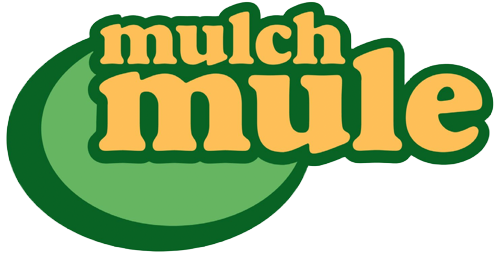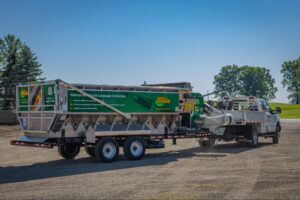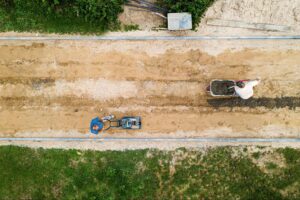The landscaping industry stands at the intersection of design, environmental stewardship, and property maintenance. According to recent industry statistics, the U.S. landscaping services market continues to grow steadily, reflecting an ongoing demand for lawn maintenance, site enhancements, and aesthetic improvements. Owners and managers often grapple with seasonal fluctuations, escalating labor costs, and the need to invest in the right equipment—all while ensuring employee safety, retaining skilled workers, and meeting customer expectations. When these factors are effectively managed and optimized, landscaping companies can experience substantial growth in both revenue and long-term value.
This comprehensive guide outlines crucial elements impacting landscaping business value. You will discover strategies for streamlining operations, reducing labor costs, fostering workplace safety, and choosing high-impact equipment investments. Additionally, it highlights innovative tools such as the Mulch Mule trailer—an advanced landscaping solution featuring a 15 cubic yard aluminum hopper for rapid material discharge and year-round versatility. By examining how operational efficiency, safety, and smart technology converge, your company can not only boost its bottom line but also solidify a competitive edge in a vibrant industry.
Landscaping Industry Challenges
Landscaping plays a pivotal role in enhancing curb appeal and preserving functional outdoor spaces. From commercial properties requiring regular upkeep to residential clients seeking beautifully manicured lawns, the demand for landscaping services endures throughout the year. However, sustaining profitability can pose significant challenges for business owners. Fluctuating market conditions, labor shortages, and intensive manual work all factor into an industry that, while essential, can be fraught with operational inefficiencies.
As costs of doing business continue to rise, especially regarding payroll and materials, many landscaping companies are focusing on best practices and strategic investments to strengthen their position. As per U.S. Bureau of Labor Statistics data, grounds maintenance workers are critical to delivering consistent, high-quality results—but controlling these labor expenses is essential to profitability. Whether it involves deploying better scheduling systems or investing in advanced material-handling equipment, every method of streamlining can lead to direct improvements in your company’s value. By looking broadly at operational workflows, labor management, workplace safety, and innovative technologies, landscaping businesses can elevate their services and overall profitability.
Understanding the Key Drivers of Landscaping Business Value
Landscaping business value hinges on more than just total revenue. Prospective buyers, partners, or investors consider many elements when evaluating a company’s overall worth—ranging from profit margins and operational processes to customer satisfaction and brand reputation. In essence, a business’s intrinsic value depends on its ability to deliver quality work efficiently while controlling costs.
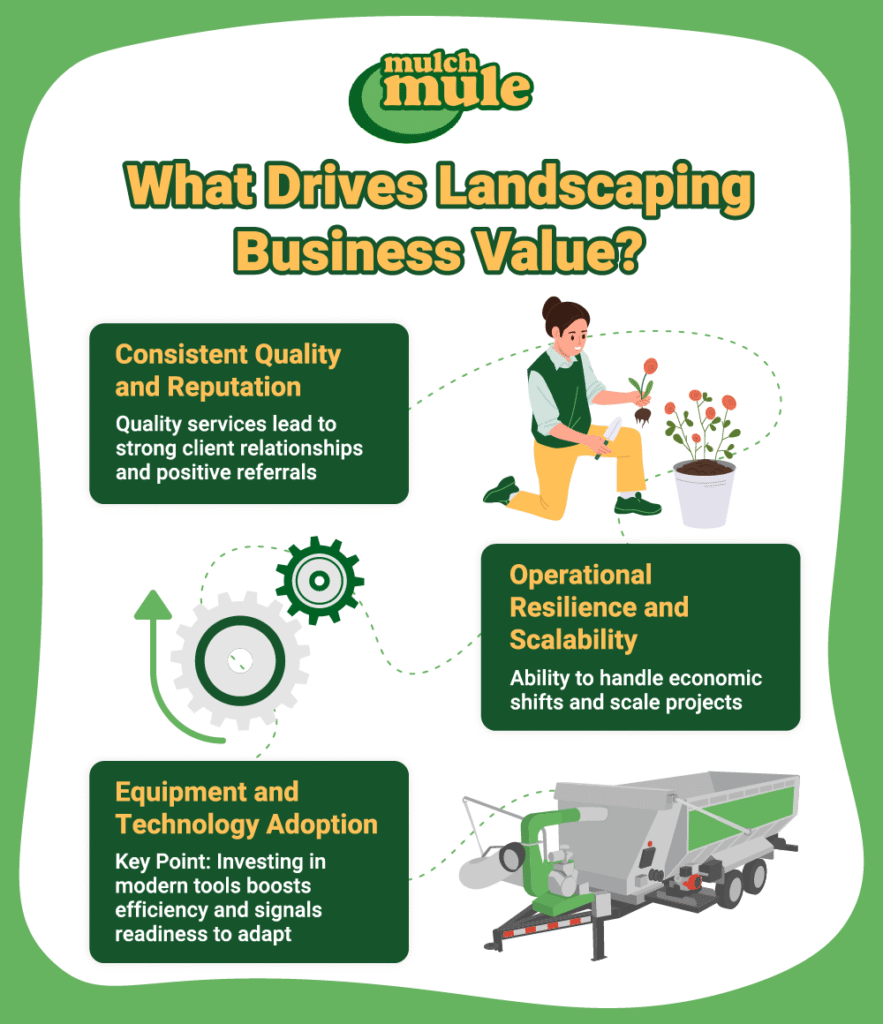
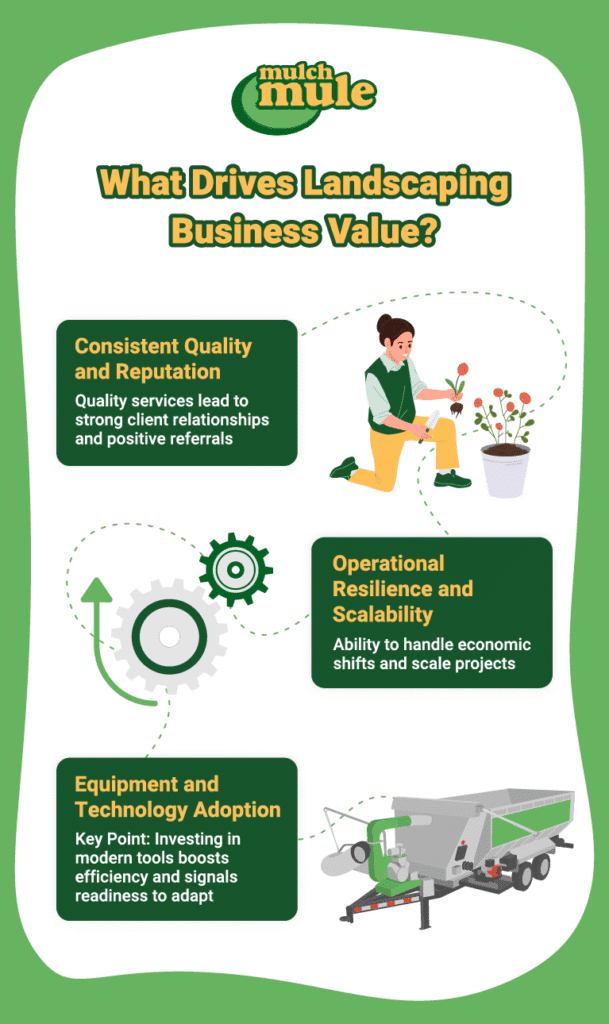
Consistent Quality and Reputation
Quality services set the tone for strong client relationships, positive word-of-mouth referrals, and potential upsells for additional work. When you maintain consistently high standards—whether in residential lawn maintenance or bulk material handling—you build trust and gain loyal customers. A strong reputation cements your market presence, which further stabilizes revenue streams.
Operational Resilience and Scalability
Another core factor involves how well your organization handles external pressures, such as economic shifts or unexpected project demands. Scalability measures whether your business can undertake larger or more complex projects without sacrificing consistency. Streamlined workflows, modern equipment, and well-trained teams offer a higher capacity to adjust and expand services under changing conditions.
Equipment and Technology Adoption
A commitment to upgrading tools and machinery is essential. Outdated or unreliable equipment can stall job progress, driving up labor costs. Conversely, companies that invest in advanced systems or machinery—like automated trailers—often see immediate gains in efficiency. Asset modernization also signals to potential buyers and clients that the company is forward-thinking and prepared to adapt to market needs.
The Role of Operational Efficiency in Enhancing Business Value
Day-to-day operations define how quickly and effectively projects move from inception to completion. Inefficiencies—such as unproductive routes, manual loading of heavy materials, and unclear priorities—raise operational costs. By refining workflows, companies can reduce labor hours, minimize overtime, and substantially increase profit margins.
Optimizing Daily Workflows
Superior efficiency starts with scheduling assignments in well-planned routes and matching crew sizes to project requirements. Implementing or upgrading modern scheduling solutions for appointment booking and management can unify office administrators and field crews. This provides real-time visibility, avenues for immediate updates, and advanced route optimization.
Attention to task sequencing also matters. Arriving on-site with the right tools, adequately trained staff, and a clear plan eliminates confusion. This depends on proactive task assignment and robust communication channels, ensuring each crew member understands their specific duties.
Technology and Equipment Investments
Equipment is central to reducing wasted time and labor. Investing in advanced material-handling solutions that automate loading or distribution of mulch, soil, stone, or leaves can positively transform workflows. When tasks that once took hours of manual labor are completed in minutes, the company can focus manpower on customer interaction, site inspections, and higher-value tasks.
Better still, adopting innovative technology reduces the margin for human error. Machines designed with features such as adjustable discharge speeds help distribute materials more consistently, reducing spillage and product waste. Automated systems can also mitigate dust and environmental damage, all while speeding up project turnaround.
Building Long-Term Value
Efficient operations do more than save money today; they create a foundation for stable growth. As your landscaping company masters quicker project execution, word spreads among clients about reliable and timely service. This accelerates referrals, enabling you to secure more customers without proportionally increasing overhead. Consequently, reputational gains and an expanded client base lift your overall business value.
The Impact of Labor Costs on Landscaping Business Profitability

Because landscaping is labor-intensive, wages and associated expenses frequently become the largest overhead item. Spearheading a profitable operation involves confronting challenges like employee recruitment, training, and retention. Equally critical is optimizing how labor is allocated to projects.
Addressing Recruitments and Turnover
A consistent source of well-trained employees is vital for sustained operations. High turnover slows down workflows, increases training expenditures, and often results in service inconsistencies. Structured onboarding and ongoing support can help stabilize employee satisfaction.
Automation and Labor Allocation
Reducing manual tasks is an effective strategy to save on labor. Consider your employees shoveling mulch or other bulk materials for extended periods. Substituting this approach with machinery that features live floor systems and curbside discharge frees up crew members to focus on skilled work—yet the project still completes faster. Over time, limiting repetitive tasks can also diminish risks of fatigue or injury, leading to significant cuts in workers’ compensation claims.
The Importance of Safety in Landscaping Businesses
Risks abound in the landscaping sector: from operating heavy machinery to handling sharp tools and chemicals, employees often work in physically demanding conditions. A strong safety culture translates to lower insurance rates, less downtime from accidents, and enhanced employee morale. As safety improves, so does the perception of your company among both workers and clients, driving up your brand value.
Building a Safety-Oriented Culture
Safety policies should be ingrained in every facet of your workflow. Along with providing protective equipment and conducting regular training, it’s beneficial to invest in safety-focused solutions for material handling that minimize the need for cumbersome, manual processes. Reviewing OSHA guidelines for landscaping and horticulture can also inform best practices to reduce jobsite hazards. When employees see a genuine corporate commitment to their well-being, loyalty and craftsmanship often improve, further elevating overall service quality.
Reducing Liability and Boosting Trust
Avoiding workplace incidents isn’t only about compliance; it’s also about protecting your brand image. News of accidents at a job site can deter future clients. Conversely, when you publicize your strong safety record, it becomes a selling point that differentiates you in a crowded marketplace. An organized approach to risk management, blending proper training with well-maintained equipment, leads to fewer injuries, stable project timelines, and satisfied employees.
Strategic Investments to Improve Landscaping Business Value

Any capital outlay in landscaping, whether it’s upgrading a mower or acquiring a specialized trailer, should enhance overall business performance. When planned carefully, these investments can unlock new revenue potential and amplify operational capacities.
Evaluating ROI for Larger Equipment
Acquiring bigger or more specialized machinery can initially appear daunting, especially for smaller companies. However, a thorough cost-benefit analysis often reveals significant savings in time, labor hours, and monthly overhead. For example, investing in trailers with built-in live floors or vacuum attachments can allow your crew to complete more jobs weekly, thereby increasing top-line revenue. Examining this return on investment helps ensure your purchase’s long-term viability.
Impact on Client Perception and Pricing
Modern machinery conveys professionalism and fosters trust. Clients are more willing to pay a premium when they see you deploy robust, cutting-edge gear that promises quicker and safer completion. This higher perceived value can underwrite modest increases in service fees, improving profit margins and stabilizing your business’s financial health in the long run.
Maximizing Equipment Use Year-Round
One of the most critical challenges is the seasonal nature of landscaping. During the off-season, many businesses struggle with underutilized equipment and idle personnel. To tackle this, purchasing tools that can handle multiple roles and adapt to different weather conditions can keep revenue flowing throughout the year.
Multi-Season Adaptability
Machinery designed for multi-purpose tasks ensures operational flexibility. Beyond spring and summer chores, the right equipment can manage fall leaf collection or even winter debris hauling. By diversifying your service offerings—such as property cleanups, bulk material deliveries, light snow clearing, or vacuum-based leaf disposal—you extend your earning period and make the most of your existing assets.
Supporting Steady Cash Flow
Consistent cash flow is paramount to sustaining growth. Instead of relying on a single revenue spike during peak seasons, year-round solutions even out financial ebbs and flows. As cash flow stabilizes, you can invest more consistently in employee training, marketing, and equipment upkeep—ultimately raising the company’s overall value.
Scaling Business Operations with Advanced Equipment Solutions
For companies seeking expansion, efficient resource allocation remains a key determinant of success. Escalating the scope of operations through mere workforce additions can be effective, but it also entails new management challenges and higher labor expenses. A more sustainable approach is scaling up with innovative machinery that reduces reliance on manual processes.
Taking On Larger, More Profitable Contracts
By bringing technology such as advanced discharge trailers or vacuum-equipped loaders into the fold, landscaping businesses can confidently pursue higher-stakes projects, like extensive commercial developments or large property management portfolios. This technology, combined with robust scheduling and operational systems, positions the company to handle intricate site demands while maintaining positive profit margins.
Aligning Growth with Resource Management
It’s essential to ensure that growth doesn’t dilute the quality of service or strain the workforce. Investing in scalable business models supported by modern technology allows you to accept more projects without multiplying staffing levels. When each new contract can be accommodated smoothly—thanks to optimized processes—your reputation and your company’s value grow in tandem.
The Long-Term Value of Innovative Landscaping Equipment
Strategic equipment decisions will yield dividends across multiple facets of your operations: from crew morale and client satisfaction to eventual resale value of the business. Tools that mitigate manual labor and deliver consistent quality also reduce the occurrence of errors, injuries, and delays.
Reliability and Maintenance
When you invest in modern machinery, you’re typically investing in better reliability, simplified maintenance schedules, and improved parts availability. Fewer breakdowns and less downtime translate directly into savings on repairs and replacements, accelerating project deadlines and boosting client trust.
Building a Reputation for Quality
High-performance machinery helps you stand out in a competitive marketplace. Some advanced trailers, such as the Mulch Mule trailer, feature a live floor system that can discharge 15 cubic yards of organic materials in as little as 45 seconds. This efficiency improves daily workloads and sets a standard for speed and reliability. Over the years, customers and peers come to view your company as technologically adept, safety-minded, and committed to delivering excellent results.
Watch this video below to learn how the Mulch Mule gets what you need where you need it with speed and efficiency. This innovative landscaping machine transports and distributes soil, mulch, leaves, debris, stone and aggregate to save you time and money.
Embracing Sustainability and Digital Transformation
A growing segment of consumers and commercial clients now prioritize sustainability, creating heightened demand for eco-friendly and technology-driven approaches. Adapting to these expectations not only opens up new market opportunities but also strengthens brand differentiation.
Sustainable Landscaping Practices
Incorporating techniques such as mulching, water-wise irrigation, and organic debris recycling can minimize environmental impact. Clients who value green solutions are more likely to become repeat customers, expanding your profit base while contributing positively to your local community. Furthermore, investing in eco-friendly landscaping efforts can attract property management companies and homeowner associations that prioritize responsible land management.
Technology-Driven Efficiency
Digital transformation is also having a profound impact in the landscaping industry. From advanced design software to real-time GPS tracking solutions, these innovations streamline job execution and improve transparency. For instance, GPS tracking tools give office staff accurate data on crew locations, enabling efficient routing and faster response times. Comprehensive landscaping marketing strategies further enhance visibility, allowing you to reach a broader audience. Collectively, these technological enhancements yield more predictive project timelines, better communication, and a modern operational profile that increases your enterprise’s value.
Enhancing Customer Relationships for Long-Term Loyalty
Long-term success in landscaping depends not only on attracting new clients but also on retaining existing ones. Satisfied customers generate repeat business and referrals, forming a stable income base that cushions your firm, even when demand dips.
Effective Communication and Transparency
Text updates, emails, or phone calls ahead of project visits reassure clients that you’re organized and respectful of their time. Providing clear contracts and estimates fosters transparency, reducing the potential for misunderstandings. Further, modern communication platforms—some embedded within streamlining tools—allow clients to access real-time project updates, building trust in your processes.
Personalized Services and Follow-Ups
Tailoring services to specific needs can significantly set you apart. Whether it’s recommending the right mulch color for a homeowner or offering commercial properties a comprehensive debris removal plan, personalization resonates with clients. After completing a job, follow-ups to assess satisfaction show genuine commitment, boosting loyalty over time.
Boost Your Landscaping Business Value with Mulch Mule

Increasing landscaping business value hinges on a holistic approach—combining efficient scheduling, labor optimization, strategic equipment investments, and a strong workplace safety culture. When each of these factors aligns, the result is a seamless operation that meets deadlines, maintains high-quality standards, and delivers outstanding experiences for clients and employees alike.
An essential piece of this puzzle is selecting the right equipment to drive innovation and growth. Tools like the Mulch Mule trailer can revolutionize material handling by reducing manual labor efforts, accelerating project timelines, and enhancing on-site safety. Automation equipment frees up your crew for more high-value tasks, amplifies productivity, and fortifies your reputation for reliability and efficiency.
Over time, these strides in operational excellence translate directly into higher business valuations, improved profits, and a reputation that resonates with customers who appreciate quality, safety, and sustainability. Take the next step toward revolutionizing your landscaping operations by exploring solutions from Mulch Mule.
